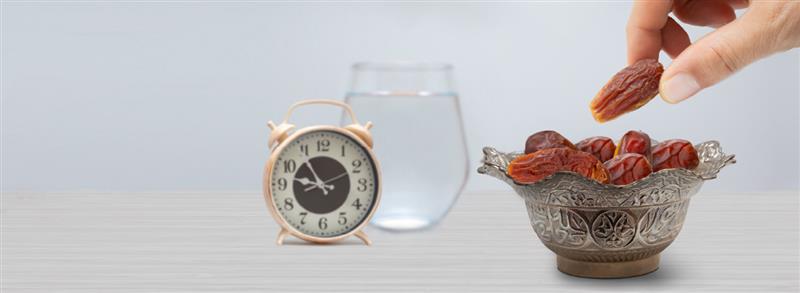Millions of Muslims across the world perform these spiritual and religious practices. During this holy month, Muslims don’t drink, eat or smoke from pre-dawn till sunset.
Dehydration in the morning and predawn has been illustrated to boost and reduce tear secretion. Fasting during Ramadan can change the ocular blood flow, and people with ocular vein occlusion can face many difficulties. Refractive errors and visual sharpness don’t do much at all, but after Ramadan, they deteriorate.
Metabolic Changes During Fasting -Improved Insulin Sensitivity
Fasting can improve insulin sensitivity, making it easier to manage blood sugar levels. maintaining stable blood sugar levels is crucial for preventing diabetic eye complications.
Hormonal Regulation
Fasting triggers hormonal changes extending beyond weight control. Two key hormones of interest are growth hormone and brain-derived neurotrophic factor (BDNF). Growth hormone helps in cell repair and regeneration, which could have protective effects on retinal health. BDNF may also benefit the eyes by promoting neuronal survival and function.
Nutrient Deprivation
Vitamins and antioxidants are crucial for maintaining eye health and preventing age-related eye diseases. And fasting may lead to a temporary deprivation of essential nutrients. The deprivation is generally short-term and manageable. But fasting should strike a balance with a nutritious diet on non-fasting days. That’s to prevent any potential deficiencies.
Enhanced Autophagy (tissue cellular clean-up) and Eye Health
fasting activates autophagy which will helps to remove damaged cellular components, including those within the eyes. fasting may reduce the risk of eye diseases from old age, resulting from the accumulation of damaged proteins and cellular debris.
Reduced Oxidative Stress and Inflammation
fasting may help in reduction of inflammatory markers which causes Oxidative stress and chronic inflammation and cause age-related macular degeneration (AMD) and diabetic retinopathy.
Tips To Maintain Your Eye Health During Ramadan
As Ramadan falls during the hot and long days of summer this year, it is important to get proper nourishment between iftar and suhour in order to promote good overall health of the body including the eyes.
Generally, healthy lifestyles include nutrition, hydration, exercise, night sleep, and enough light lighting. And these things are also crucial for healthy eyes. So search for eye specialists near me and consult with doctors or follow these tips for healthy eyes during Ramadan.
Hydration: Before and after the fast, people who are fasting during Ramadan should try to maintain a minimum of 2.5 litres of water per day.
Good Sleep: Many people find difficulty in maintaining their sleep schedule, and it leads to a lack of sleep during Ramadan. And because of this, they suffer from eye issues. So, if you want to maintain your eye health, it’s essential to get at least 6 hours of sleep so it will prevent dry eyes.
Maintain healthy diet: A balanced diet is significant for healthy vision and eyes. Therefore, during the suhoor and iftar, try to eat sufficiently and eat high-nutrition food like Green, leafy vegetables, oranges, eggs, nuts, beans, tuna, fish, etc.
Quit smoking: According to the research, smoking kills eye tissues—people who smoke double their trouble and develop the risk of increasing AMD (age-related macular degeneration). Ramadan offers an excellent opportunity to detoxify the body and soul. So, quitting smoking can help you to get better eye health.
Check your sugar level and keep follow up with endocrinologist
Diabetic retinopathy is serious condition can cause blindness and it is a must to control your blood sugar through diet and medication under care of endocrinologist.
People with diabetes can fast but under specific conditions. The endocrinologist may require you to change your medication to help you take tablets outside fasting times, those who need insulin to control their diabetes should not fast.
Regular workout
healthy diet and regular exercise can help alleviate both high blood pressure and high cholesterol, even during Ramadan, it can help you prevent many health issues related to high cholesterol and increased blood pressure and boost your vision.
Use of Eye drops in Ramadan
Ramadan could be an important cause for noncompliance with prescribed ophthalmic treatment.
- According to the majority of Islamic scholars and international Muslim Councils (e.g The Muslim Council of Britain) have reassured that continuing to use eye drops does not break the fast.
- But if you are still worried, there are some things you can do for additional reassurance. One is to block your tear duct by pressing on the corner of your eye next to your nose, immediately after putting in your drops. This stops the drops reaching the back of your throat, and keeps them in your eye, where they need to be.
- If in doubt, you can choose to use your drops between Suhoor and Iftar.
When to visit ophthalmologist during Fasting
If you have existing eye problem especially glaucoma or diabetic retinopathy.
Fasting reduce intraocular pressure
if you have any of these symptoms:
- Dry eyes
- Blurry vision
- Eye strain
Ophthalmologist will help you to
- Detecting pre-existing conditions
- Monitoring vision changes
- Preventing complications


